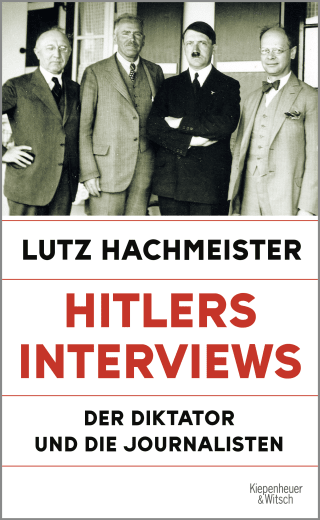How do you interview a dictator? Lutz Hachmeister's first overall account of Hitler's encounters with journalists is an informative foil for dealing with the populists, autocrats and dictators of the present day.
Adolf Hitler gave an astonishing number of interviews in the course of his political career, several dozen, from the early 1920s to the 1940s. Anglo-American journalists in particular found the Austrian-born "Bavarian Mussolini" a fascinating interviewee. One may recognise in this a pattern that is common in dealing with radical figures in the media to this day - as for many journalists, these interviews promise career advancement, book deals, or prizes.
In his book, Lutz Hachmeister describes for the first time the overall history of Hitler's encounters with journalists, evaluates significant interviews with regard to their journalistic propagandistic strategy and also analyses the rivalries of Hitler's "media advisors". He considers these interviews in the historical context and in relation to Hitler’s media strategy, and examines the complicity between propaganda strategists and reporters. The book is based on original sources and archive material, and provides a new and modern view on what was planned from the outset as a "propaganda dictatorship" - and its changing perceptions abroad.
Based on this, Hachmeister also draws a line to our present day: What dynamics are still apparent today between the media on the one hand and dictators or autocrats on the other?

